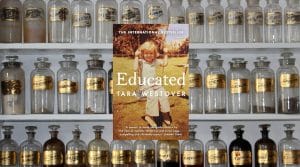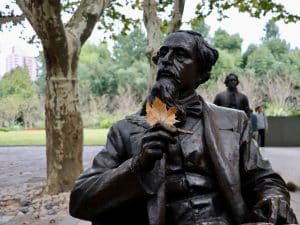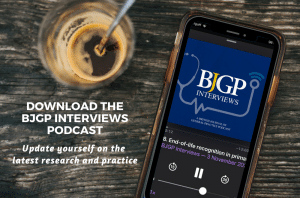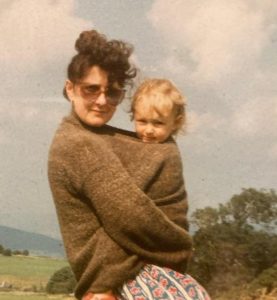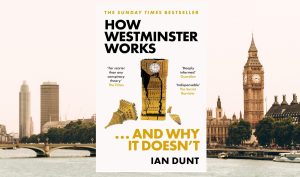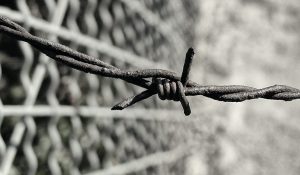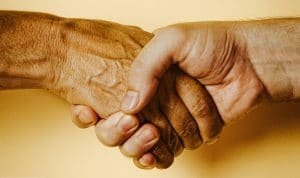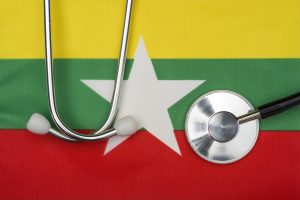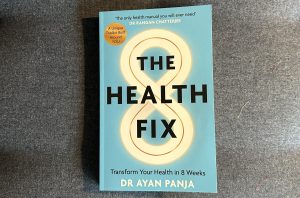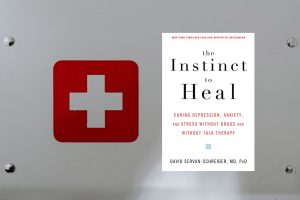Lavina Sakhrani-Clarke learns how to be ill and the importance of recovery.
...cognitive bias sustained public faith in the medical profession long before doctors had the tools to truly alter the course of an illness. These forces did not disappear the moment that working therapeutics arrived - meaning we remain enthralled by own salves
Seventeen per cent of UK households experienced food insecurity in 2023, with cases of rickets, scurvy, and malnutrition on the rise. Are we facing a revival of Dickensian-era diseases?
‘Wherefore’, meaning ‘For what reason’, is one of the most fundamental questions we must ask in medicine. Tasneem Khan applies this idea to trauma-informed care.
In this episode, we talk to Dr Shoba Dawson about prescription medication sharing behaviours.
Is there 'One Big Thing' that GPs do? Or does it emerge out of all the things that GPs do?
Nurse Bernadette Millwood, in the final year of her career, is interviewed by her daughter Dr Sinead Millwood, a newly qualified GP in the first year of hers. What can we learn about primary healthcare going forward into the future?
Ian Dunt has written an easy-to-read explainer about how our UK Government is supposed to work and how it actually does work. To show the archaic ways of working and perverse incentives that are the operating mechanisms, he strips the system down
"Healthcare professionals are being increasingly asked to consider referral for genetic testing. While for the majority with an abnormal finding, curative treatment is not currently possible, having a disease with a name can provide relief and allow for more targeted supportive measures.
Is general practice the platypus of medical specialities?
Medicine: Right Idea, wrong science? Should critical realism be the new science of medical practice?
Alistair Appleby introduces critical realism as a philosophical foundation for medical science and primary healthcare
In this episode, we talk to Dr Cathy Morgan and Professor Carolyn Chew-Graham about early signals for bipolar disorder in primary care.
Do the ARRS roles lead to GP clinics filled with increasing complexity, and what are the other contributory factors? Nada Khan looks at the evidence.
Alex Burrell reflects on the moral agonies of planning an early GP-career
Mavin Kashyap shares key practice insights from a specialist community healthcare service for asylum seekers and refugee (ASR) adults.
"We wish to share the story of an innovative digital intervention that has helped to overcome existing divisions by creating a vibrant interdisciplinary network of learning and health activism. We describe how a few family physicians created a virtual community on WhatsApp
For the record, plenty of elderly patients have excellent lifesaving care, are well looked after, and speak highly of the exemplary care and attention they had in hospital.
However, hospital isn’t always the best place for them. Let me explain why I believe
The editorial team discusses the top 10 most read papers of 2023.
Myanmar should not be forgotten in the conversation around the ongoing failure to protect hospitals and health workers in conflict zones. Jim Brockbank reminds us.
What is intensely likeable for me as a GP in his 40s is that The Health Fix also written by a GP in his 40s, with an engaging approach that blends clinical experience, medical evidence and personal history.
Pattern recognition by AI is already overtaking humans in many diagnostic fields such as radiology and cytology. Large language models are doing the same in communication, dialogue and processing human-generated text. Here we present their potential within primary care using four broad
Richard Armitage visits the wild frontier of LLM-powered commercial health apps and reflects on three examples: ElliQ, MMGuardian and WHOOP Coach
Throughout medical history, there has been a tension between systems that locate health within the patient and those that have it outside. Ben Hoban finds the determinants of health and illness by looking in and by looking out.
In this episode, we talk to Professor Kate Brain about patterns of patient characteristics associated with satisfaction with remote consultations.
Nada Khan argues that it’s worth just reflecting back on what was on offer and why, whether this retention scheme was working, and what future plans NHS England may have to keep GPs in practice.
In 2020, Bevan secured funding to implement a Starting Well programme. Their aim was to empower women and their families to improve the outcome of future generations by optimising their physical, psychological, and social wellbeing prior to conception.
David Jeffrey reviews a terrific manual for bibliophiles. General practitioners may be reassured that bibliomaniacs, as yet, do not present for therapeutic intervention.
Drawing inspiration from Brazil, Cornelia Junghans, Matthew Harris, and Azeem Majeed suggest building a community infrastructure of trained and paid Community Health and Wellbeing Workers (CHWWs) who work with GPs, community services and local authority.
Ahmed Rashid muses about surgical site infection, opioid dependence, racial diversity, and 'Meals on Wheels'
In this episode, we talk to Dr Jennifer Voorhees about the paradox of access to care in general practice.
It’s worth examining the reasons in the health system for supporting special interests. Are we playing Jenga with the health system, continually removing building blocks to replace obvious deficiencies in a rickety structure? Or are we enhancing the generalist, patient-centred care that
Richard Armitage predicts how AI can transform clinician-patient consultation.
Science Fictions is an accessible and enjoyable read that is directly relevant to our work as GPs, useful for our much-needed critical appraisal skills, and fascinating to the curious mind that wishes to explore the behind-the-scenes goings on that underlie the research
Even as a GP trainee in the mid-90s, I genuinely don’t recall learning about the concept or practice of clinical reasoning. It’s not as if we weren’t guided on data synthesis or critical thinking, or the importance of these aspects of the
Hannah Milton reflects on domestic abuse statistics in relation to men and women
At the most recent WONCA global conference in October 2023, the WONCA Women’s Working Party on Women and Family Medicine (WWPWFM) met with young doctors movements from all world regions, to discuss common themes and possible ways to work together. Amanda Howe
In this episode, we talk to Isabel Leach about the patient perspectives around end of life care.
We know (from that research) that higher continuity is associated with lower mortality rates, reduced healthcare costs, higher patient satisfaction, safer prescribing and reduced hospitalisations. But what about patient safety incidents? Nada Khan investigates
"... the overall impression is that everything in here is still very relevant today — some maybe even more so than when he first wrote it." – Elke Hausmann reviews David Servan-Schreiber's 'The Instinct to Heal' 20 years on from it's original publication.


